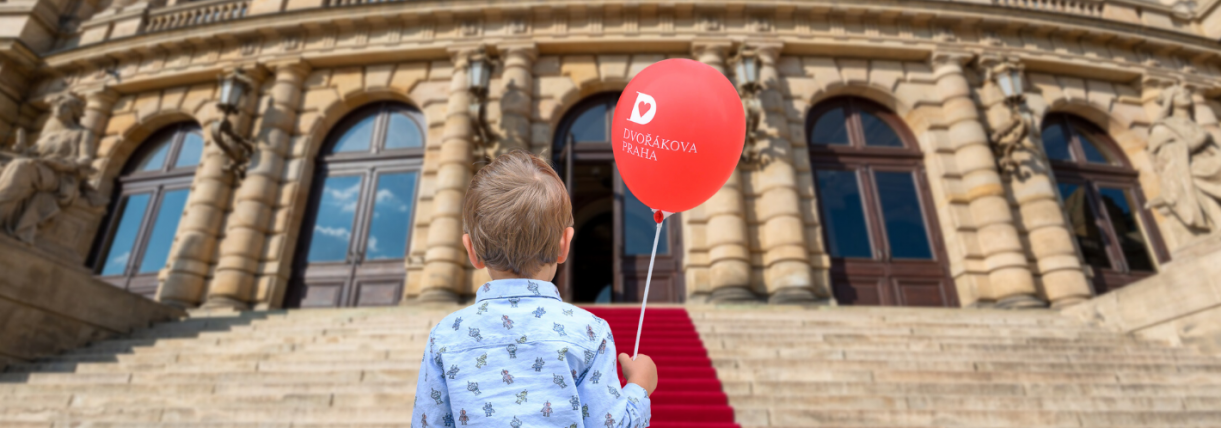
10.00: divadelní představení Rusalka
11.15: tvůrčí dílničky na téma Rusalka
13.00: Hudba spojuje: Timbalooloo – cesta světem
Creative workshops will take parents and children through Antonín Dvořák's fairytale opera Rusalka in a entertaining way.
The Water Goblin’s Story – “Poor, pale Rusalka…”
What colour is lake water? Is it green, blue, grey, or yellowish, or are there water lilies blooming on it? In our story, the lake water’s colour depends on the mood of the water goblin. And you can find out what mood the water goblin is in and why when you stop by and help him colour the lake.
Rusalka’s Sorrow – “O moon in the deep sky…”
When the moon weaves all the stars together with long strands of silk, lovely music is heard in the sky. Is it calm and quiet like the moonlight, or is it wild and loud like Rusalka’s sorrow? And what images are reflected in the pond in the light of the moon? If the moonlight is not enough, the stars will help, too. O moon, do not go dim! Do not go dim!
The Witch Casts a Spell – “Abracadabra…”
How do you mix a potion to change a fairy into a human being? Where do you look for all the ingredients the magical potion must contain so that such a transformation will really work, and what magic words have to be said while cooking the potion? And what is it like when your tongue turns to wood? You will learn all of that from the Witch that Rusalka went to ask for help with a difficult task.
The Prince’s Infatuation – “White flowers along the way…”
The castle is getting ready for the wedding of Rusalka and the Prince. “And they lived happily ever after!”, as they say… Or does it turn out differently this time? What is a celebration at a castle like? And why is Rusalka sad there? Together with the prince, we will devote ourselves to courtly dancing. We will dance the noble polonaise and find out what it was that so infatuated the prince.
An independent association of freelance artists who work together simply because they enjoy it. Docela velké divadlo Litvínov was founded on 1 September 1996. Today, it brings together nearly 30 artists who collaborate on individual productions. Since its inception, the theatre has performed more than 10,000 shows, seen by nearly 3,000,000 spectators both at home and abroad, including in Australia, the USA, Canada, Mexico, France, Germany, Italy, Spain, Austria, Croatia, Serbia, Slovakia, Bulgaria, Bosnia and Herzegovina, Armenia, Switzerland, and many other countries.
The theatre is based in Litvínov in its own historical building, constructed between 1906 and 1910, which it strives to restore to its original state. It also has a permanent stage in Prague at the Divadlo U Hasičů and regularly performs at the Bolek Polívka Theatre in Brno as well as in theatres and cultural centres throughout the Czech Republic.
source: www.docelavelkedivadlo.cz

Suk Hall is the newest hall in the Neo-Renaissance Rudolfinum. It was created from 1940 to 1942 during modifications of the adjacent Dvořák Hall, as a smaller concert hall. In designing the interior decor architects Antonín Engel and Bohumír Kozák took inspiration from the original style of the Rudolfinum’s architects Josef Zítek and Josef Schulz, thus Suk Hall fits perfectly into the original composition of the building. During the most recent modifications in 2015, according to a design by architect Petr Hrůša, the acoustics of the hall and its connection to the Rudolfinum’s atrium were improved while respecting the historical value of these premises, protected as a historical landmark. Suk Hall has a new grand piano and continues to be intended mainly for performances of chamber music.